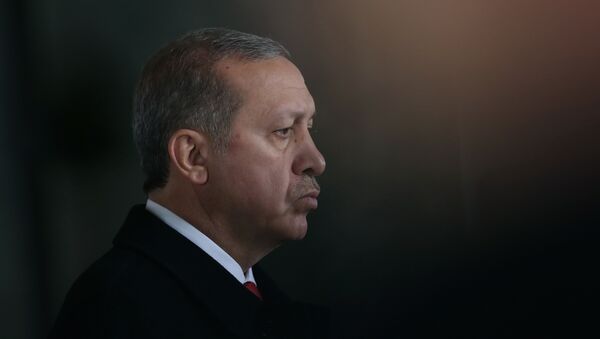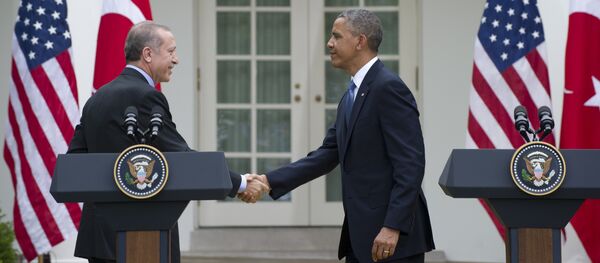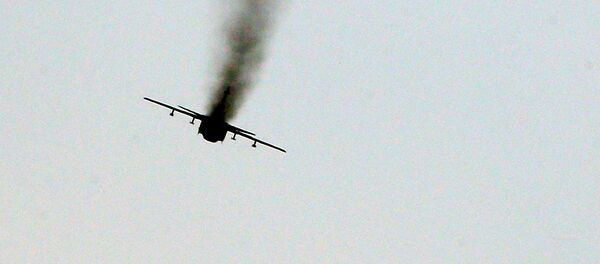He noted that Turkey had been trying to build a steady partnership relations with Russia for years. For instance, Ankara didn't support the EU's decision to impose anti-Russia sanctions. However, Russian policy in Syria contradicts Turkey's interests.
"We know that the downing of Russian aircraft was a political ploy" Seufert stated.
The Turkish President Tayyip Erdogan claimed that the Russian Su-24 bomber was shot down because it violated Turkey's airspace.
"But then again, similar violations take place on the Turkey's border with Greece on a regular basis, and nobody attacks jets there. I believe that Turkey made this decision because it feels driven into a corner with its policy toward Syria," the analyst said, adding that Turkey intended to create a so-called no-fly zone to the south of its border.
Erdogan is also worried about the fact that international authorities are starting to accept the idea of Bashar Assad participating in Syria's transition period, while Turkey wants him removed or replaced by another government, the analyst noted.
"I believe that Ankara realized there is a chance of forming a broader coalition on the Syrian crisis, and it contravenes her intentions. The downing of the Russian aircraft is an attempt to sow discord within the potential international coalition," Seufert stated.
The expert underlined that Turkey's attitude towards the self-proclaimed Islamic State group is ambivalent: Turkey's bombings in Syria are primarily targeted at positions of Kurds, not ISIL.
On Tuesday, a Russian Su-24 bomber jet was downed by an air-to-air missile launched by a Turkish F-16 jet in response to an alleged violation of Turkish airspace and crashed in Syria, 2.5 miles from the Turkish border.
Putin described the Turkish attack as a "stab in the back" carried out by "accomplices of terrorists."



